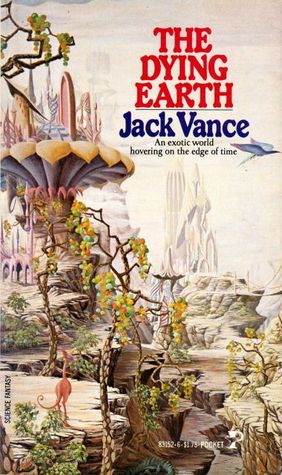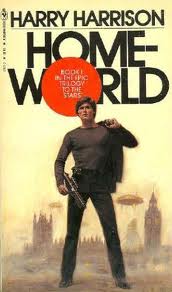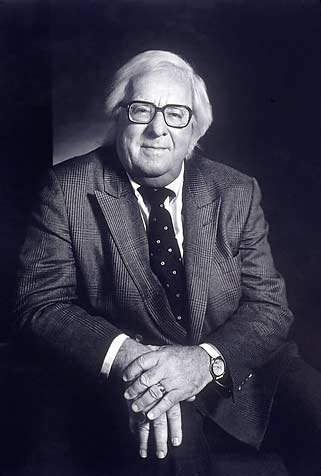Quick Review: Jack Vance's The Dying Earth
 Friday, October 19, 2012 at 08:51AM
Friday, October 19, 2012 at 08:51AM  An exotic world hovering on the edge of time!From the back cover: “THE TIME is fabulously far from now; over the dying earth hovers a worn and burned-out sun; in the red day and fearful night strange creatures wander horribly through the frighted forests; magic governs man. Revelry and sloth absorb the time as Earth spins its last few courses and prepares to plunge to eternal night.”
An exotic world hovering on the edge of time!From the back cover: “THE TIME is fabulously far from now; over the dying earth hovers a worn and burned-out sun; in the red day and fearful night strange creatures wander horribly through the frighted forests; magic governs man. Revelry and sloth absorb the time as Earth spins its last few courses and prepares to plunge to eternal night.”
I can't believe it took me all these years to read this book! I've known about The Dying Earth for decades, threatened to read it just as long, and yet have always put it off.
The book is actually a collection of Vance's earliest Dying Earth stories. Each tale focuses on a different character for the most part, but they are not the main focus of the book anyway. Not to say that the characterization is not there. It definitely is. Liane the Wayfarer is fleshed out in just so many pages more so than many characters in a series of novels. Vance is perceptive when it comes to humanity, even when that humanity is simply waiting around to die. And that, to me, is the BIG thing about this book.
The setting is so rich and beautiful and developed that it is much like a character unto itself. It shapes so much of even what the characters do and how they act. In case, you aren't familiar with it, the stories are set so far in the future that the sun is swollen and red, and magic and technology are indistinguishable.
I've noticed in some reviews that readers were put off by Vance's language. Some of the words are archaic or from British usage, but that didn't bother me one bit. If anything, it added to the alien feel of the far future setting. To me, the book read like prose poetry, and I would even catch myself reading it aloud at times.
All of these books are being released as ebooks in authorized versions. I will definitely be reading the other books in this series. I only wish I hadn't waited so long.
Enjoy!
 Jack Vance,
Jack Vance,  The Dying Earth in
The Dying Earth in  Books,
Books,  Quick Review,
Quick Review,  Science Fiction
Science Fiction 


